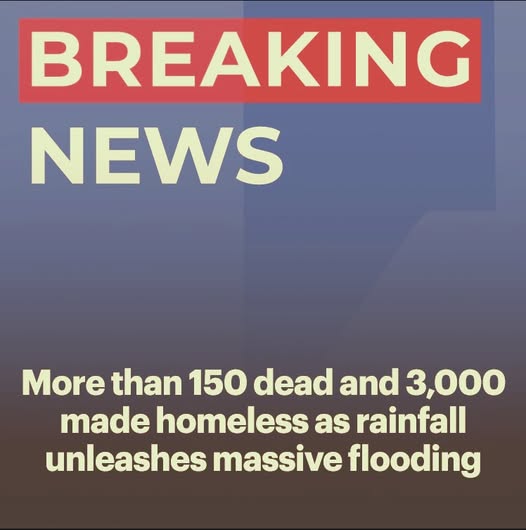
A catastrophic flood triggered by torrential rainfall has claimed the lives of more than 150 people and left at least 3,000 others homeless in Nigeria, as communities grapple with one of the deadliest natural disasters in recent memory.
The flooding struck early Friday morning after intense pre-dawn rains pounded Mokwa, a bustling market town located about 230 miles west of Abuja. Floodwaters surged through homes, leaving rooftops barely visible and residents wading waist-deep in muddy torrents.
According to Ibrahim Audu Husseini, a spokesman for Niger State’s emergency agency, the disaster has ravaged at least 500 households across three communities. Northern Nigeria—already suffering from extended dry spells and worsening climate extremes—is now battling the consequences of sudden, violent downpours during its short rainy season.
President Bola Tinubu has ordered the immediate activation of the national emergency response center, pledging swift assistance to affected communities.
“Search and rescue operations are underway,” President Tinubu announced in a late-night statement. “All relevant federal agencies have been mobilized. Relief supplies and temporary shelters are being deployed without delay. No Nigerian affected by this tragedy will be left behind or unheard.”
As floodwaters begin to recede, grief hangs heavy over Mokwa. Families are mourning their loved ones, some still waiting for news of those missing. The town, a vital trading hub where northern farmers meet southern buyers, now faces the added burden of economic loss.
“We’ve lost everything—our people, our homes, our farms,” said Kazeem Muhammed, a local resident. “Even those who had stored up food supplies have seen it all washed away.”
This latest tragedy follows widespread flooding in September 2024 that displaced hundreds of thousands across Nigeria and led to a prison break involving nearly 300 inmates.
With climate change intensifying the frequency and severity of such events, communities across the country remain on high alert as they brace for more unpredictable weather ahead.